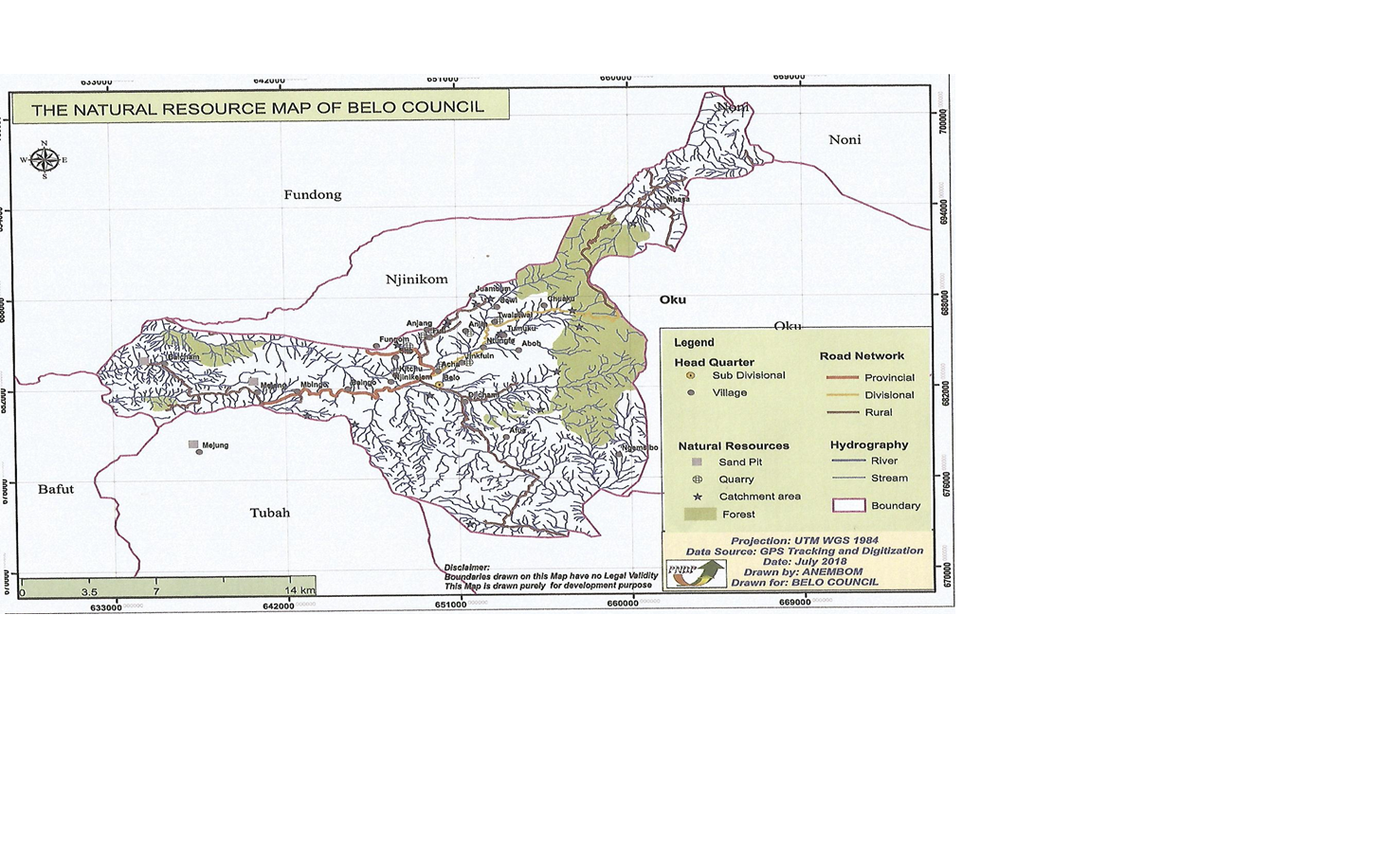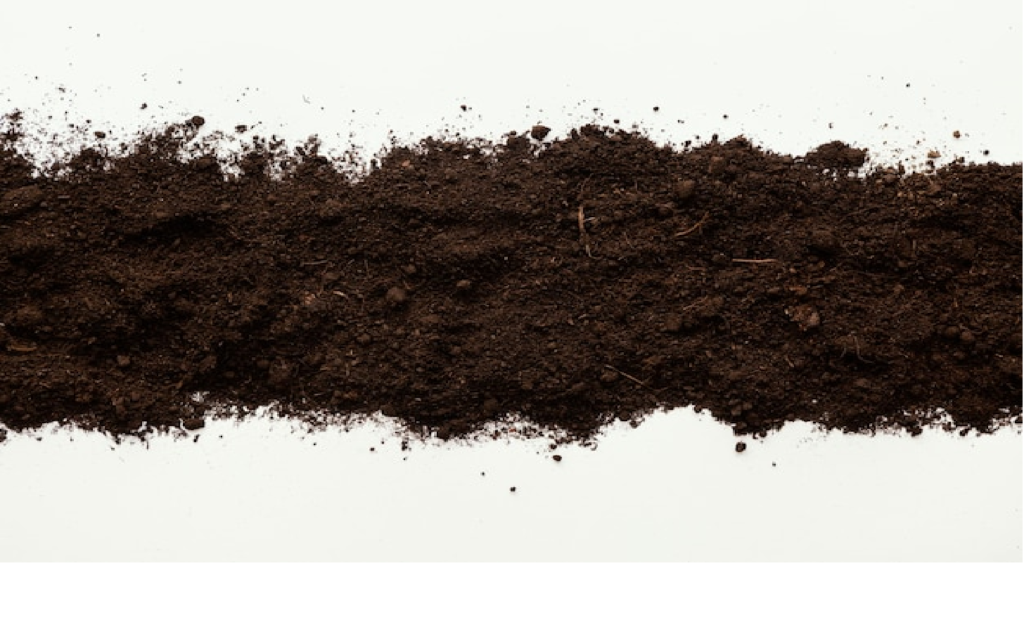Main Potentials and Resources of the Council

Table 45: Natural Resources Matrix in the Belo Council area
| No. | Natural resource | Localisation | Potential | User | Controller | Mode of Management access | Trends | Problems/ constraints | Action to be taken |
| 1 | Prunus Africana and other endemic exotic/ local tree species (Flora and fauna) | -Ijim Plant and Animal Sanctuary
-Mbi Crater in Ndawara Plateau |
-Covers 20,000 ha in montane and gallery forests
-Prunus has high medicinal value as a cure for some human diseases |
-Illegal bark dealers of Prunus
-Local population -Hunters -Wood carvers -Tradi-practitioners, naturalists and herbalists, -Farmers and Fulani cattle rearers |
MINEP, MINFOF, Traditional Council | Local Community Forest Management Institutions (CFMI) | -Biodiversity loss
-Deforestation -Illegal hunting -Encroachment by farmers and graziers -Bush fires |
-Abusive exploitation of Prunus and other forest tree species
-Non respect of forestry management norms |
-Sensitise cattle rearers against bush fires burning
-Provide incentives to CFMIs, and Council to assist sustainable forest management |
| 2 | Stone quarries, sand pits and other mineral deposits (quartz and precious stones) | Acha, Aboh, Mejung, Mujung, Mughom valley | Enormous stone quarrying potential in most villages | -Illegal quarrying activities by individuals
-Illegal miners -Local population |
-MINEP
-Ministry of Mines -Belo Council |
Free access | Dwindling | Uncontrolled and illegal extraction | Intensify sustainable natural resource management systems |
| 3 | Touristic site escarpments, hills and valleys | Baingo escarpment, Ndawara plateau, Mbi Crater, Antusi Quarter cliffs and caves | -High eco-touristic potential,
-National monument and patrimony |
-Visitors
– Foreign tourists -Council riverine communities -Local population |
MINEP, MINFOF, MINTOUR, MINTRAN-SPORT | Free access | Degrading hill sides | -Poor access roads
-Degradation of sites through poor farming activities |
-Maintain foot paths and roads to sites
-Improve on hotel services -Create Council Zoo -Government Services to intensify control |
| 4 | Rich Biodiversity and medicinal plants | Ijim, Mughom gallery forest and valley, Private plantations | High utilisation for traditional healing | -Tradi-practitioner
-Population of Belo |
-MINEP
-MINFOF -Belo Council -Ministry of Public Health |
Free access | Over extraction and/ or illegal exploitation | -Loss of biodiversity/
extinction -Deforestation and degradation of ecosystems and habitat |
Control and sensitisation by MINEP |
| 5 | Baicham Mujang reserved forest and marshlands | Baicham, Mughom valley | -Rice, wheat production
-Cocoa cultivation and other food crops |
Local population and riverside communities | MINEP, MINFOF | Free access and private ownership | Under utilisation
|
-Degradation of landscape,
-Poaching -Deforestation |
-Environmental education and sensitisation
-Intensify follow up |
| 6 | Natural Forests and Animal Sanctuary | Djichami Community Forest and Fungeh/ Mujang Virgin Forests | Virgin primary and secondary forests (rich in bio diversity) | Local population | MINEP, MINFOF | Free access | Illegal timber exploitation | -Degradation of soils,
-Deforestation and loss of bio diversity, -Poaching |
-Environmental education and sensitisation
-Intensify follow up |
| 7 | Continental fresh water | Aboh hill, Ijim, Djichami, Ndawara plateau, Rivers Ngewi, Mughom, Mufua | Extraction and bottling as mineral water
Hydro-electricity generation |
-Local population
-Visitors/ tourists -Council |
-MINEP
-Ministry of Water and Energy |
Free access | Decreasing volume/ flow rate | -Water catchment destruction
-Climate change and desertification -Degradation of water resources (pollution from chemicals) |
-Create factory to bottle and market water
-Sensitise population on sustainable management of water resources |
Source : field survey 2017 by Anembom

